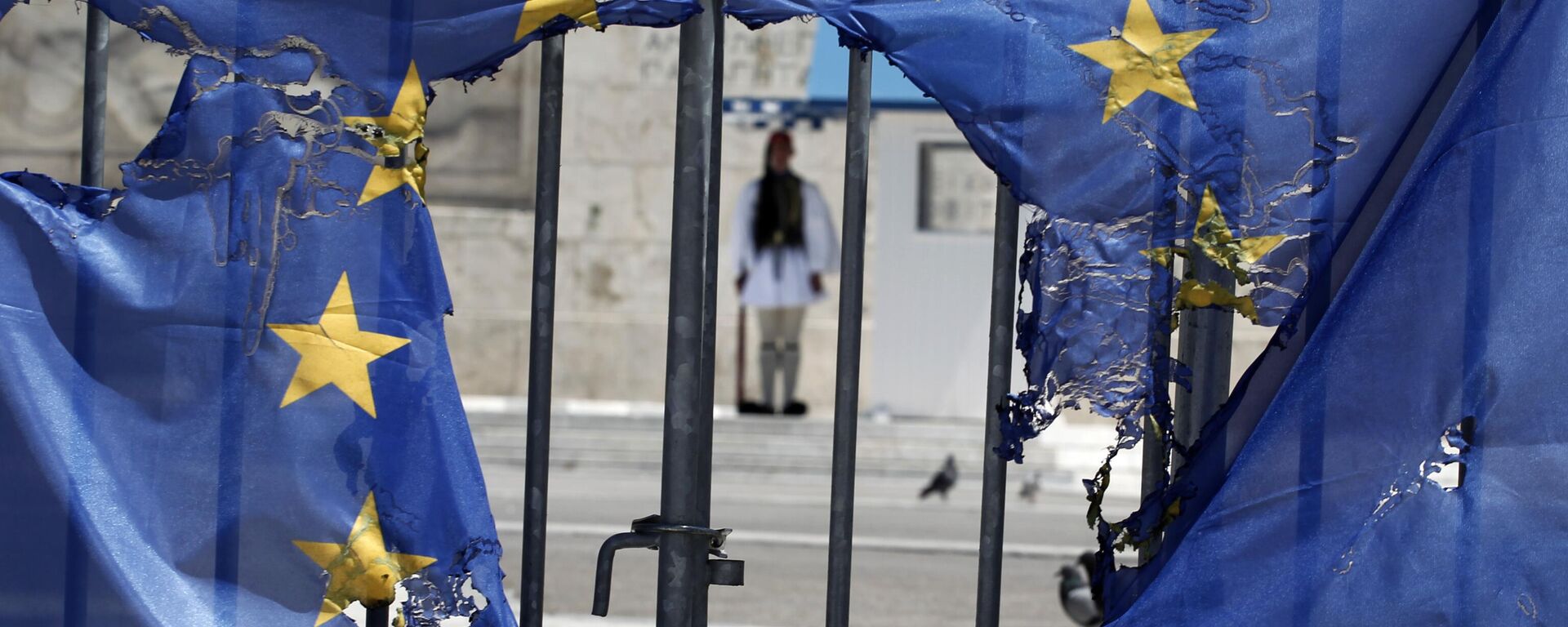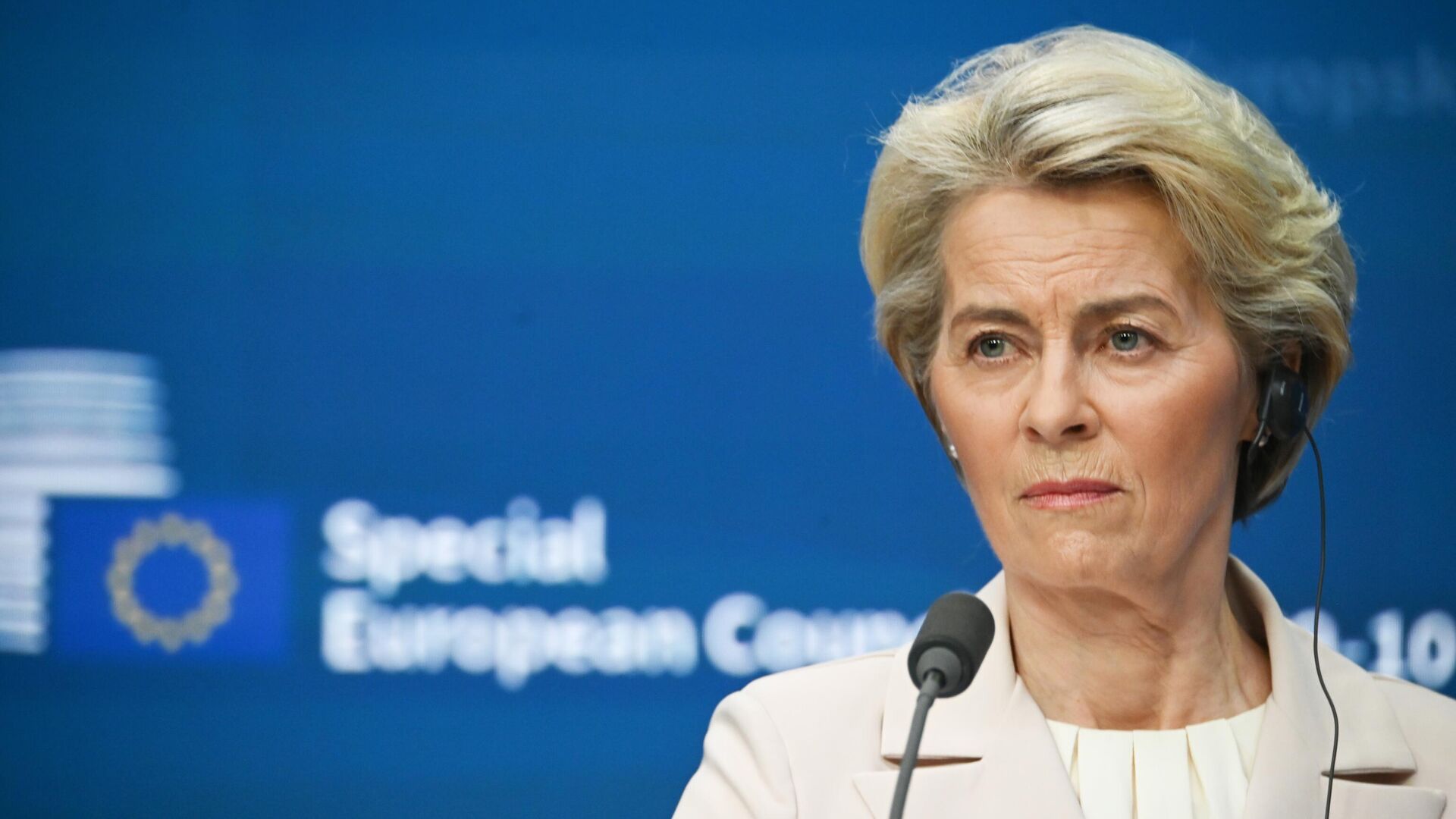https://sputnikglobe.com/20241025/plans-for-new-pan-european-intelligence-agency-highlight-efforts-to-federalize-eu-1120679764.html
Plans for New Pan-European Intelligence Agency Highlight Efforts to Federalize EU
Plans for New Pan-European Intelligence Agency Highlight Efforts to Federalize EU
Sputnik International
EC chief Ursula von der Leyen’s call to create a new united intelligence body for the EU is a product of the EU institutions seeking to strengthen the union’s “federal aspect,” says former Swedish Air Defense officer Mikael Valtersson.
2024-10-25T18:43+0000
2024-10-25T18:43+0000
2024-10-25T18:43+0000
analysis
ursula von der leyen
european union (eu)
intelligence
https://cdn1.img.sputnikglobe.com/img/07e8/01/1a/1116404613_0:140:3077:1871_1920x0_80_0_0_c75f558263c6205fbd36e65efcbc2108.jpg
EC chief Ursula von der Leyen’s call to create a new united intelligence body for the EU is a product of the EU institutions seeking to strengthen the union’s “federal aspect,” says former Swedish Air Defense officer Mikael Valtersson.According to him, efforts to further the federalization of the EU are usually conducted under the pretext of some alleged external threats, usually associated with China or Russia.The opinions on von der Leyen’s scheme vary, with the bloc’s members that are “at odds with both the central EU institutions” not being too thrilled by her proposal, Valtersson suggests.The EU institutions’ bureaucratism and slow reaction time also makes “other more pro federal countries hesitant to become subservient to a federal intelligence agency,” he adds.“In the case of an unlikely, but successful establishment of a European intelligence agency, such an entity would also in the long run, become a powerful competitor to US intelligence agencies. Nothing that the US would appreciate. The US establishment prefers a divided and subservient Europe that follows the US lead,” Valtersson says.
https://sputnikglobe.com/20241015/as-facade-of-liberal-democracy-crumbles-political-tensions-put-eu-at-risk-1120552189.html
Sputnik International
feedback@sputniknews.com
+74956456601
MIA „Rossiya Segodnya“
2024
Sputnik International
feedback@sputniknews.com
+74956456601
MIA „Rossiya Segodnya“
News
en_EN
Sputnik International
feedback@sputniknews.com
+74956456601
MIA „Rossiya Segodnya“
Sputnik International
feedback@sputniknews.com
+74956456601
MIA „Rossiya Segodnya“
eu federalization, eu intelligence agency
eu federalization, eu intelligence agency
Plans for New Pan-European Intelligence Agency Highlight Efforts to Federalize EU
European Commission President Ursula von der Leyen writes in her recent report that the EU should create a new intelligence body to deal with external threats.
EC chief Ursula von der Leyen’s call to create a new united intelligence body for the EU is a product of the EU institutions seeking to strengthen the union’s “federal aspect,” says former Swedish Air Defense officer Mikael Valtersson.
“Their long-term goals are to turn the EU into a federal state like the USA,” Valtersson tells Sputnik, referring to the EU institutions. “There are both federalist and antifederalist forces fighting about the future of the EU within the organization. Those that want a more federal EU use every pretext they can find to strengthen and create new federal institutions.”
According to him, efforts to further the federalization of the EU are usually conducted under the pretext of some alleged external threats, usually associated with China or Russia.

15 October 2024, 01:09 GMT
The opinions on von der Leyen’s scheme vary, with the bloc’s members that are “at odds with both the central EU institutions” not being too thrilled by her proposal, Valtersson suggests.
“Presently this mainly concerns Hungary and Slovakia, but several other countries might soon also be governed by like-minded governments. These countries want to diminish the federal aspect of the EU, both are also often in open conflict with the EU,” he elaborates. “Sharing sensitive intelligence with a European intelligence agency, seen as a potential enemy of your own country, could nearly be as bad as sharing intelligence with an enemy in a real conflict.”
The EU institutions’ bureaucratism and slow reaction time also makes “other more pro federal countries hesitant to become subservient to a federal intelligence agency,” he adds.
“In the case of an unlikely, but successful establishment of a European intelligence agency, such an entity would also in the long run, become a powerful competitor to US intelligence agencies. Nothing that the US would appreciate. The US establishment prefers a divided and subservient Europe that follows the US lead,” Valtersson says.



